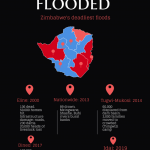 Movement for Democratic Change vice-president Elias Mudzuri says the party should hold an extra-ordinary congress to elect the successor to founding president Morgan Tsvangirai, who died in February last year, before holding its ordinary congress and the structures that elected Tsvangirai in 2014 should elect his successor.
Movement for Democratic Change vice-president Elias Mudzuri says the party should hold an extra-ordinary congress to elect the successor to founding president Morgan Tsvangirai, who died in February last year, before holding its ordinary congress and the structures that elected Tsvangirai in 2014 should elect his successor.
Current MDC president Nelson Chamisa was humiliated at the congress when he lost the post of secretary-general to Douglas Mwonzora though he went to congress with the support of 11 out of the party’s 12 provinces.
The MDC is planning to hold its congress in May but it is still unclear whether members of the Alliance who broke away from the MDC-T necessitating the 2014 congress will be allowed to contest or not.
Mudzuri told the Standard today: “What is overdue in MDC is an extraordinary congress to elect our late president Tsvangirai’s successor. Our ordinary five-year congress is due in October this year, not in May. All structures from the last congress in 2014 are expected to run office until October. Congress delegates from the 2014 structures are the ones who are expected to elect a substantive successor for the late president Tsvangirai at an extraordinary congress.”
Mudzuri said the party congress was being flouted and this could split the party.
“We have adequate internal dispute resolution mechanisms in the party to able to deal with all disputes that may arise. What is now missing in the leadership are enough leaders who are prepared to protect and uphold the people’s leadership manual as laid down in the MDC constitution. Some of our leaders are now more preoccupied with getting positions of influence and privilege in the party and government while breaking the people’s charter at the same time. Such a scenario, if not addressed quickly, will always lead into disputes’” he said.
“Splits are a natural product of irreconcilable disputes within an organisation, and the MDC Alliance is not exempt. The only way to avoid such splits from happening is for leaders to follow the constitution, and for the people, through their leaders, to speak out when they notice a problem.”
He also said it was pointless for Chamisa to continue to dispute the election result in view of the Constitutional Court decision. Chamisa argues that he won last year’s presidential election but was robbed by the Zimbabwe Electoral Commission but he lost the election challenge case at the Constitutional Court.
Asked whether he thought that a resolution on the election dispute between Chamisa and Mnangagwa was possible, he replied: “It’s not possible, under the constitution of Zimbabwe, to resolve an election dispute that was heard and settled by the Constitutional Court. I believe the decision arrived at was final, and that there is no other legal remedy.”
(590 VIEWS)


